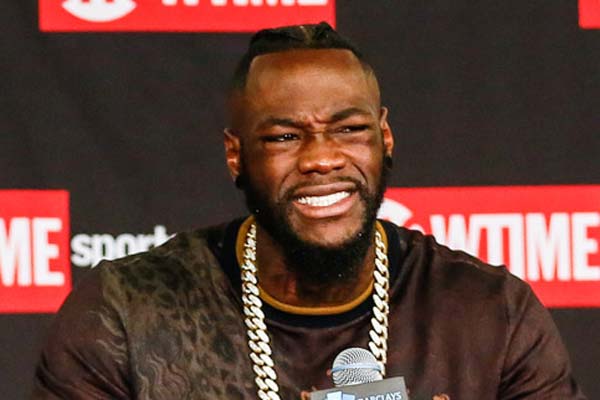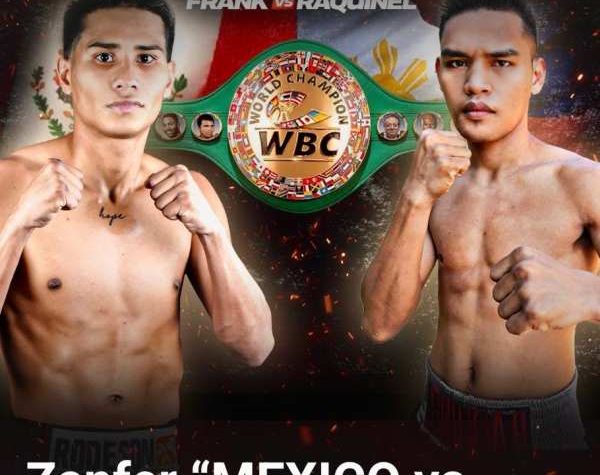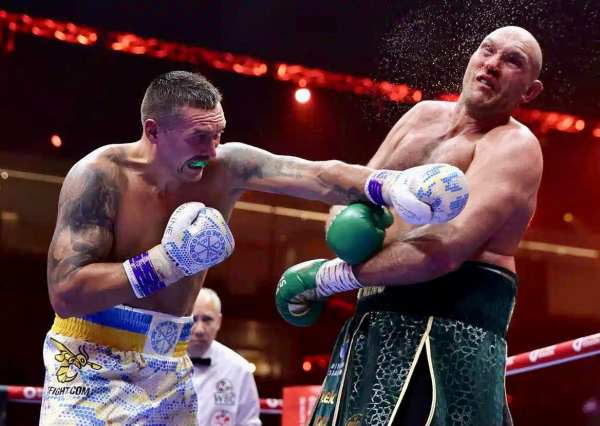
Fightnews.com
By Robert Hough
Photo: Stephanie Trapp/SHOWTIME
Deontay Wilder spoke of having peace in his mind, but the heavyweight spoke with passion and torrents of profanity when he discussed social issues. Wilder (38-0, 37 KOs), who defends his WBC heavyweight belt Saturday at Barclays Center in Brooklyn, NY in a rematch with Bermane Stiverne (25-2-1, 21 KOs), was scathing as he related perceptions of racial inequality and shortcomings within what he called the “black community.”
“The more I learn about this country, the more I want to move to another country,” he told Fightnews.com® recently on a call to discuss the fight, which came together after a match-up with Luis Ortiz was scrapped when the Cuban failed a drug test.After Wilder said “Trump was right” with his thoughts about the “black community” being irresponsible, the Alabama native and resident spoke for several minutes about racial issues today and in decades past, noting the 1921 destruction of Black Wall Street in Tulsa, Oklahoma. Promoter Lou DiBella eventually tried to bring the conversation back to boxing.
Wilder was not finished.
“People don’t want to hear it,” he said, interrupting DiBella. ”People don’t want to hear the facts. Look at white-owned corporations investing in jails because they were promised that the mother——-s would stay full.”
In relating his view that it is appropriate for athletes to speak out about social issues, the 32-year-old called himself a Black American, not an African-American, a term he said is tied to an ugly past.
Wilder echoed the sentiments of John H. McWhorter, an author and Columbia University professor who wrote, “To term ourselves as part ‘African’ reinforces a sad implication: that our history is basically slave ships, plantations, lynching, fire hoses in Birmingham, and then South Central, and that we need to look back to Mother Africa to feel good about ourselves.”
Wilder also said he was saddened by Stiverne’s comments about him because they one more example of “a black man hating another black man.”
Wilder has no small measure of frustration about boxing, as well, in the wake of Ortiz failing a drug test, which was the third time in less than two years that someone set to face the Bronze Bomber has done so.
“It just saddens me,” he said. “Man, it just saddens me. It makes me reevaluate my career. It almost made me lose the love of boxing for a little bit as well too because of certain things and activities that has been known in this sport with these guys avoiding or wanting to get on bad substances when they know they’re not supposed to be taking it in the first place.”
The father of two boys and two girls insisted, though, that all is well in his thoughts.
“My head is in a peaceful state of mind,” said Wilder, who acknowledged that he would love to fight British heavyweight Anthony Joshua, who holds the IBF and WBA belts. “I still sit back and analyze my career. I think, ‘What have I done so wrong to get the bad end of the stick with every fight?’ All I ever wanted was to fight the best and be the best.”
Ortiz would have been at least a formidable opponent if not the best, but he failed a drug test. That development came after Wilder’s fight with Alexander Povetkin was cancelled when Povetkin failed a drug test in May 2016. In February, Wilder was set to face Andrzej Wawrzyk, who also failed a drug test.
“Am I that dangerous to other fighters’ careers that they feel they have to do certain things?” Wilder asked.
Wilder dominated Stiverne in January 2015 and had five fights since then, against opponents who’ve not been among the sport’s elite.
Stiverne had one fight since he faced Wilder, a 10-round decision over Derric Rossi in November 2015.
He said his team has worked to make fights since then and that’s there’s been a non-stop focus on fitness.
“I’ve been in the gym all day, every day,” said Stiverne, who turns 39 on Wednesday. “I’m better than ever now.”
Getting the call to face the champ was no surprise, he said.
“I always thought the fight was never going to happen with Deontay and Ortiz. When they announced it, the first thing I thought was, ‘This fight is not gonna happen so I gotta get ready for it.’”
Stiverne suggested that Ortiz is no stranger to poor choices.
“I’ve known Ortiz since 2004. He’s always been who he is now.”
Stiverne reiterated that he was ill during his first fight with Wilder; reports after the fight said he spent two nights in a Las Vegas hospital and was diagnosed with rhabdomyolysis, symptoms of which include muscle pain and weakness, and difficulty moving legs and arms.
“In the first fight with Deontay, everything he gave me, I ate it for breakfast and I was a sick man,” Stiverne said.
Wilder, who vowed to retire if he loses, was unimpressed.
“If you ate my punches for breakfast, I hope you left room for lunch, baby.”





More News
Liu Gang, Brico Santig Join Forces
Highland’s Double Impact: August 18 at Lumpinee
Balajadia, Atencio in Action in Thailand